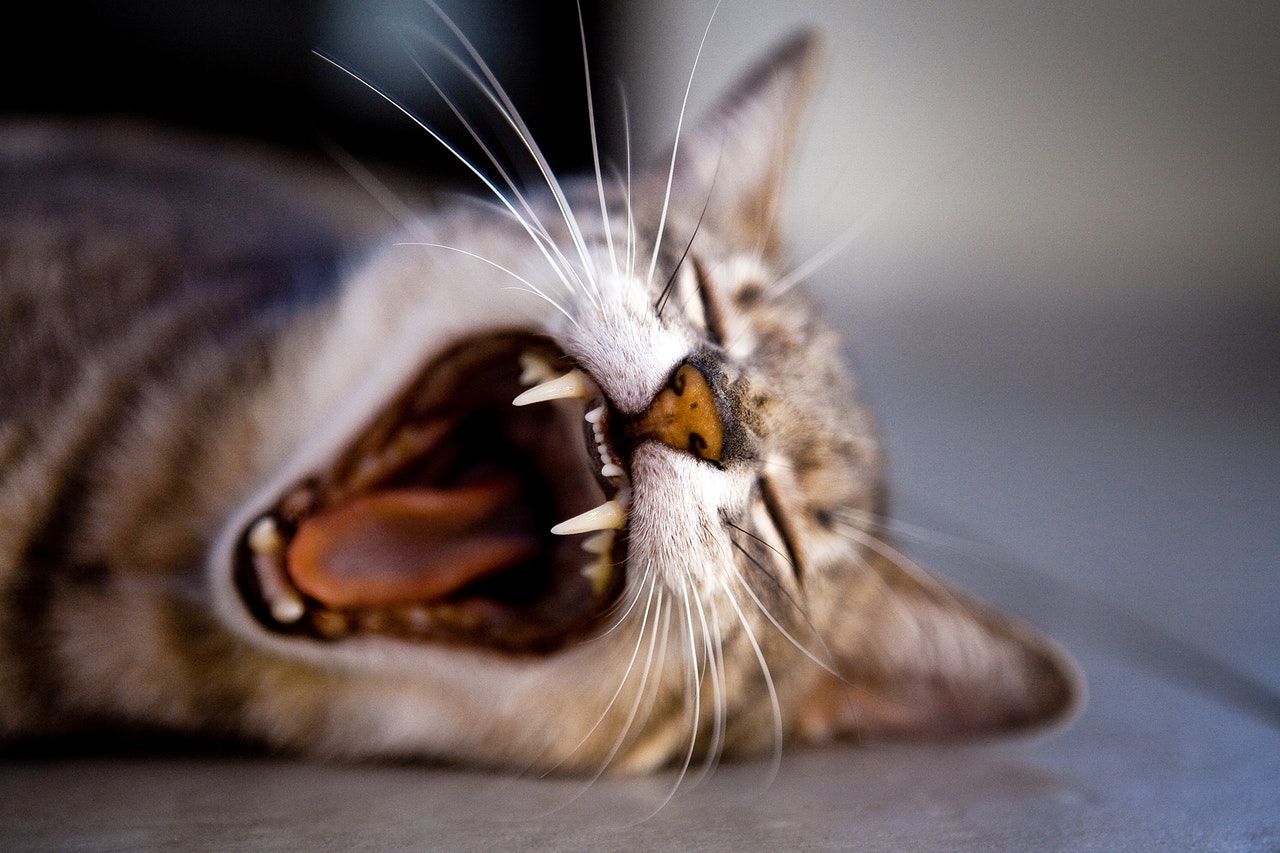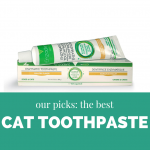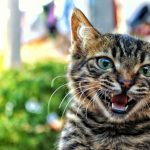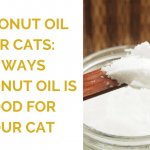Debunked: The Myth of Dry Cat Food for Dental Health
Last Updated on
Toss the toothbrush and crunch crackers instead?
The main premise typically perpetuated by dry cat food marketers and believers in the ability of dry food to clean cats’ teeth is completely flawed. Perhaps you’ve been told that the crunchy food will scrape plaque and tartar from your cat’s teeth. It’s an idea that is initially appealingly logical – it’s easy to imagine the rough kibble scraping away impurities like a mouthful of little dental scrapers. Unfortunately, it doesn’t really make sense.
Cats don’t chew their food, anyway
Well, not really. The only time that most cats really work their jaws to get any cleaning action from their food is when they’re gnawing on a raw meaty bone. The majority of cats just gulp down the kibble, making the idea of your cat crunching through beneficially abrasive cat food, frankly, ridiculous.
Harmful ingredients
To make the claims about dry food being good for dental health laughable, dry kibble contains ingredients that aren’t just innocuously useless, but actually dangerous for your cat’s health. Dry food has been linked to urinary tract disease and diabetes, two of the most common feline health issues. Not only does dry food not do anything good for your cat’s teeth, it could make them sick. Additionally, as you’ll see in the next couple of points, the starchy nature of your average dry kibble can lead to some serious consequences for your cat’s dental health.
Dry food leaves residue
One of the common claims about the dental health benefits of dry food is that it leaves less residue than other foods do. It’s an enticing idea, but one that ultimately falls flat. Grain-heavy cat food leaves a carbohydrate residue that’s appealing to the kind of bacteria that creates periodontal disease. Tooth-decaying bacteria love those carbs and will easily proliferate in the starchy environment that your cat’s mouth becomes after eating crunchy kibble.
Raw food leads to a healthier mouth
Big cats, who consume raw, meaty bones, tend to have pristine oral health, while periodontal disease plagues a huge portion of the conventional-food-eating cat population. Yep – not only is dry food not beneficial for your cat’s dental health, it can actually make their dental health worse.
Check out this video for a shocking look at what happened when four healthy dogs switched from eating raw meaty bones to dry food. After just 17 days, all of the dogs exhibited yellowing of the teeth and bad breath.
If this video doesn’t make you reconsider the claims about dry food’s dental health benefits, you must either be brainwashed or a dry food marketer. We should probably discuss this personally.
So what IS a good way to take care of your cat’s dental health?
It’s important that we take care of our cats’ dental health, but as we’ve learned, feeding dry kibble is not the way to do it. We recommend feeding your cat raw, meaty bones, which encourages gnawing and scissoring of the teeth. As your cat rips through the flesh and gnaws at the bones, they get a total oral workout. In addition to feeding raw meaty bones, try brushing your cat’s teeth on a regular basis and supplementing their diet with coconut oil. Coconut oil isn’t just a baseless fad: it’s a tremendous source of lauric acid, which has antibacterial properties.








